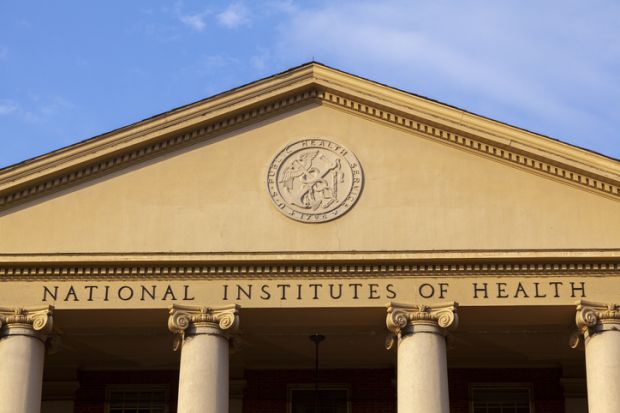Francis Collins has said that he plans this year to end a record 12-year tenure as director of the US National Institutes of Health, the leading supplier of basic research money to US universities.
Dr Collins, renowned for his roles in mapping the human genome and discovering the genes responsible for cystic fibrosis and neurofibromatosis, decided to step down after feeling that the NIH had accomplished key goals with respect to fighting the Covid pandemic.
He was one of the few top-level federal officials kept in place by President Trump, and he acknowledged in an interview with The Washington Post that he came close to quitting over Mr Trump’s anti-science assertions.
Pleading from Anthony Fauci, director of the National Institute of Allergy and Infectious Diseases – one of the 27 NIH divisions – helped convince Dr Collins to stay and join Dr Fauci in publicly urging a science-based response to Covid.
Dr Collins also faced some scepticism over his commitment to objective science, given his acknowledged status as a born-again Christian. But he has spoken and written often about his religious views as affirming rather than challenging proven scientific fact.
In a statement, Joe Biden called Dr Collins a “dear friend” and said that he had saved the lives of millions of people. “I was grateful he answered the call to serve even though it was asking him to stay on the job longer than anyone in NIH history,” the president said.
The NIH has a $41 billion (£30 billion) budget that it spends on biomedical research, with about four-fifths going to university scientists and the rest performed within the NIH’s own labs.
Born in rural Virginia, Dr Collins became known in Washington for singing and playing a guitar in a band, bicycling and riding a motorcycle. His record service at the NIH reflects his ability to speak in a folksy and enthusiastic style that celebrates the science and the lawmakers from across the political spectrum for whom medical research has long been a broadly popular investment.
Dr Collins said he reached the decision to step down by the end of this year as a way of giving the Biden administration ample time to fill the position.
“I love this agency and its people so deeply that the decision to step down was a difficult one,” he said in a statement.
“I am proud of all we’ve accomplished. I fundamentally believe, however, that no single person should serve in the position too long.”
A graduate of the University of Virginia, Yale University and the University of North Carolina at Chapel Hill, Dr Collins did his research work at Yale and the University of Michigan before establishing his lab at NIH. He plans to continue that lab, using genetics to combat conditions such as diabetes and premature ageing.
His accomplishments at NIH include a 38 per cent growth in the agency’s budget since his arrival in 2009; major initiatives to fight cancer and rare diseases, and to explore the human brain; and the promotion of individual-centred medical strategies.
Dr Collins also devoted significant attention to battling racial and gender disparities in scientific research, and to reducing the tendency in grant review processes to favour cautious and incremental projects. But he will be leaving with critics – in some instances himself – dissatisfied with the overall progress in those areas.
He also permitted the NIH to join a Trump administration crackdown on scientists with ties to China, although he admitted some concern over its direction.
And in a reflection of the NIH’s heavy focus on drugs and devices over more holistic and human behaviour-focused approaches to societal health, Dr Collins repeatedly expressed puzzlement over the refusal of many Americans to accept scientific advice involving Covid, including wearing masks and getting vaccinated.
Register to continue
Why register?
- Registration is free and only takes a moment
- Once registered, you can read 3 articles a month
- Sign up for our newsletter
Subscribe
Or subscribe for unlimited access to:
- Unlimited access to news, views, insights & reviews
- Digital editions
- Digital access to THE’s university and college rankings analysis
Already registered or a current subscriber? Login








